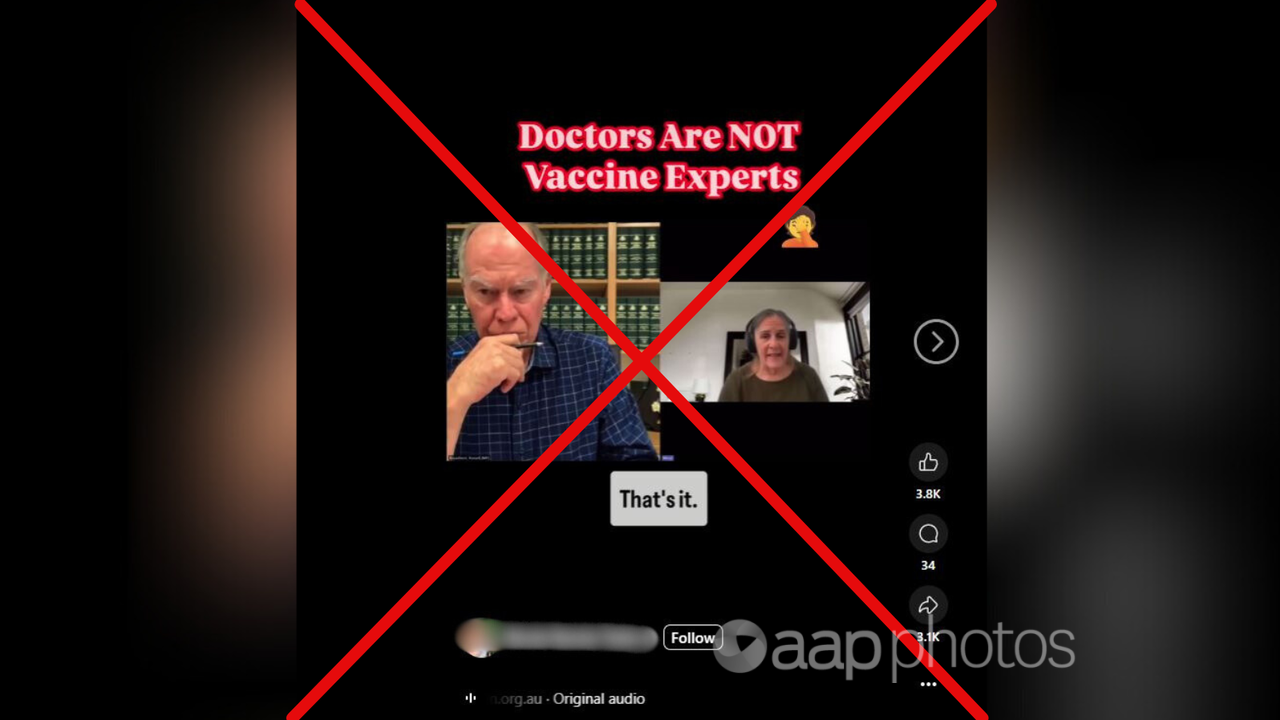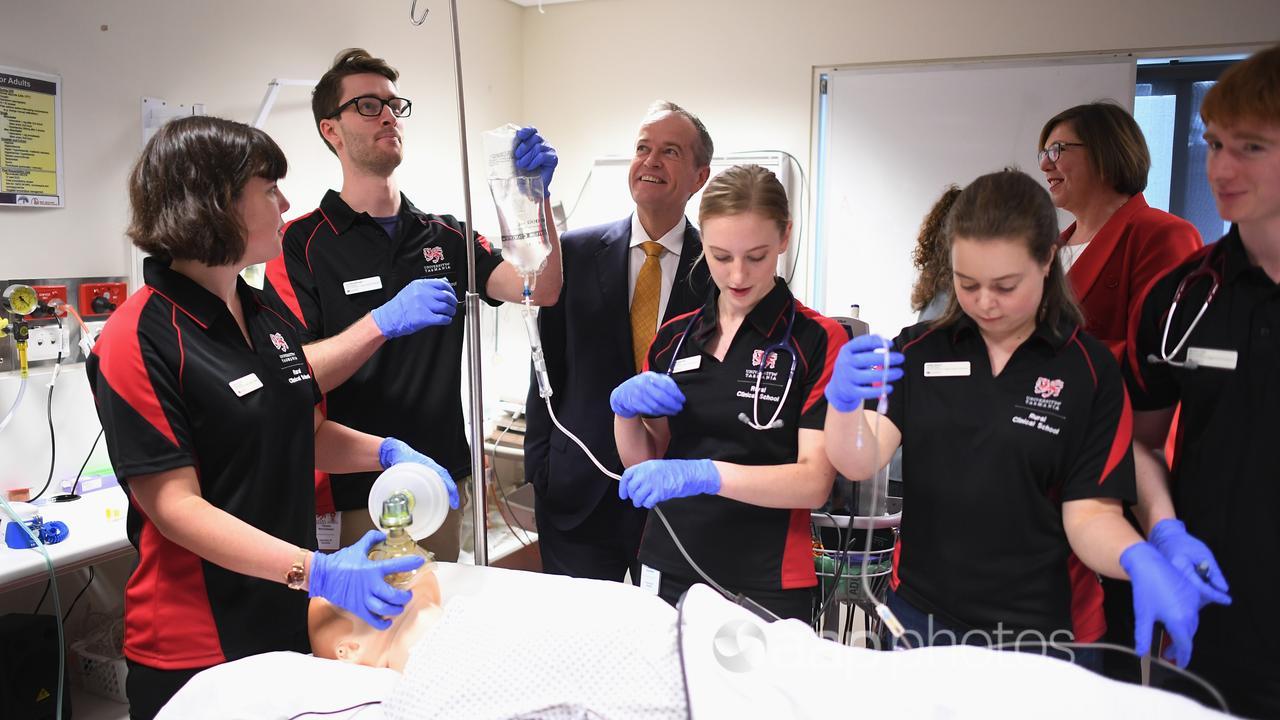AAP FACTCHECK – UNSW medical students are taught about vaccines and their potential side effects throughout their training, despite a claim to the contrary made in a video circulating on social media.
In the first four years of the Sydney university’s six-year course, there are 18 learning activities and eight assessments involving vaccination and immunisation, the university said.
The contrary claim was made by Meryl Dorey, founder of the Australian Vaccination-risks Network, in an interview with federal MP Russell Broadbent.
The clip has been shared on Facebook.

“When doctors study vaccination, and we had the curriculum for the New South Wales school of medicine at UNSW – University of New South Wales – and it was out of four years of medical school there was one morning where vaccinations were discussed,” Ms Dorey said.
“The discussion was not about safety, efficacy, any of that, the whole information was these are the vaccines that we’re giving out, this is how to administer them and this is how you report that you gave someone a vaccine. That’s it.”
Ms Dorey has been the subject of numerous checks by AAP FactCheck.
Ms Dorey also refers to the Australian Medical Professionals Society, an organisation set up to “provide an alternative voice” to the Australian Medical Association, claiming doctors associated with it say they did not learn anything about vaccines in medical school.
“I think that any parent who’s done a modicum of research will be able to know more about this issue than the average doctor,” Ms Dorey said.
When AAP FactCheck approached Ms Dorey and asked for evidence of her claims, she said the curriculum she was referring to was from “many years ago” but she had spoken to “probably thousands” of doctors who were speaking out about the issue.
UNSW said Ms Dorey’s claim contained several errors, including that the course is only four years, when it is in fact a six-year program which includes “multiple learning activities dedicated to vaccination and immunisation”.
A university spokesperson said that in the first four years alone, there are at least 18 learning activities and eight assessment tasks on vaccination and immunisation.
In the last two years students also learn about vaccination and immunisation during clinical placements, including in general practice, paediatrics, and emergency, the spokesperson said.
Professor Michelle Leech, Deputy Dean of Monash University’s Faculty of Medicine, Nursing and Health Sciences said the claim was equally untrue of the Melbourne medical school.

Prof Leech said throughout the medical course students learn about vaccination schedules, public health aspects of vaccination, health economics of vaccination and the risks and benefits of vaccination.
“This begins in the pre-clinical phase when students learn about the principles of immunisation and how it actually works from a basic science and immunological point of view,” Prof Leech said.
“They then continue to learn more across the whole course and the concept is repeated frequently.”
She added: “There’s very extensive teaching about vaccination in the Monash medical course and in every medical course in Australia.”
The Royal Australian College of General Practitioners, which is responsible for maintaining standards for quality clinical practice, education and training, also said Ms Dorey’s claim was incorrect.
“GPs are experts in administering vaccines, their Australian medical training, considered the gold standard internationally, involves over ten years of training, education, and experience,” a spokesperson told AAP FactCheck.
“The syllabus includes training in population health and the diagnosis, treatment and prevention of infectious diseases.
“When it comes to vaccines, as with other health issues, GPs are trained to consider the patient’s history and relevant risk factors, discuss the options available to the patient and any risks associated, and enable the patient to determine the most appropriate decisions about their own health care.”
Mandatory training is provided covering the risks, benefits, and potential side effects of new vaccines, the spokesperson said. Information about common side effects of vaccines in the National Immunisation Program is also available online.
A similar version of the claim in the US has been debunked by AP.
The Verdict
False – The claim is inaccurate.
AAP FactCheck is an accredited member of the International Fact-Checking Network. To keep up with our latest fact checks, follow us on Facebook, Twitter and Instagram.
All information, text and images included on the AAP Websites is for personal use only and may not be re-written, copied, re-sold or re-distributed, framed, linked, shared onto social media or otherwise used whether for compensation of any kind or not, unless you have the prior written permission of AAP. For more information, please refer to our standard terms and conditions.

















